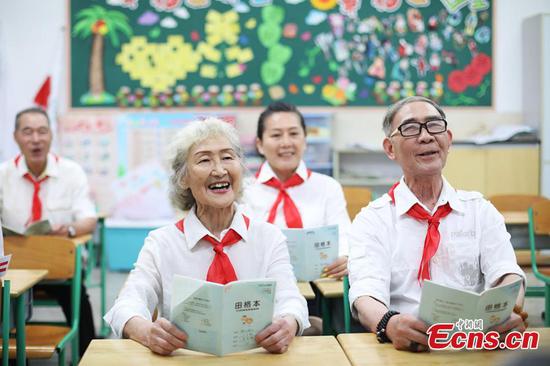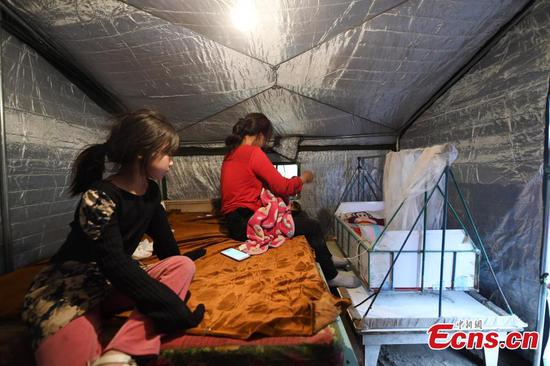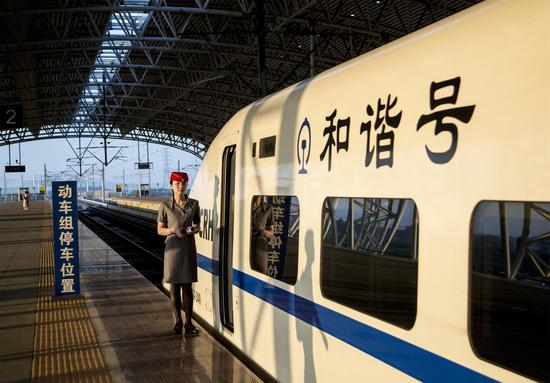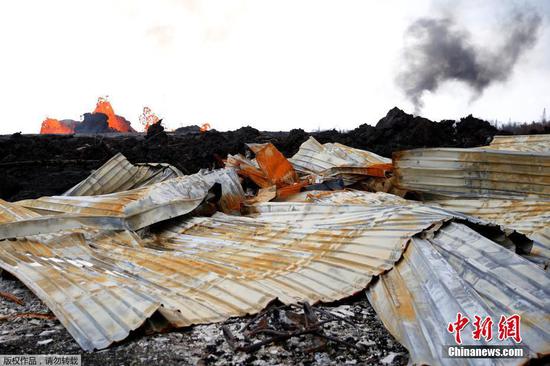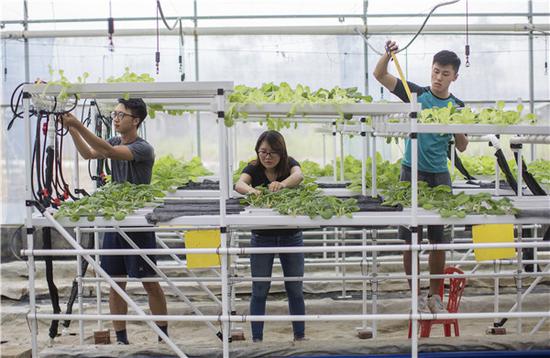
Three people from Hong Kong work at a farm in Jiangmen, Guangdong Province, last year. They developed a cohabitation system for fish and hydroponic vegetables. (Zhang Youqiong/For China Daily)
More than 80 percent of university students surveyed in the Hong Kong Special Administrative Region are willing to work on the mainland, according to a local poll released by one of the city's youth associations on Tuesday.
The survey, which tabulated the opinions of 465 Hong Kong undergraduates in February and March about whether they intend to work on the mainland, was conducted by the Hong Kong United Youth Association.
Of those surveyed, more than 90 percent of interviewees said they felt positive about the nation's future economic development. About 75 percent cited jobs as pivotal in their thinking.
According to the survey, more than 80 percent of the interviewees said they believed that the experience of working on the mainland will help increase their competitiveness in the fierce battles brought by globalization.
On the other hand, a lack of social connections on the mainland and being separated from families were cited as major obstacles to making a move.
Besides the survey, HKUYA also launched three internship programs this year for Hong Kong youth to experience the nation's development.
Along with another internship program co-hosted by HKUYA and New World Development Company Limited, as many as 250 Hong Kong undergraduates will head to four mainland cities - Beijing, Shanghai, Dalian and Harbin - through the programs.
They will spend six weeks working for companies and government organizations starting from June.
"Youth is the future, and also the most dynamic, the most innovative generation, with great potential to push forward social development," Under Secretary for Home Affairs Jack Chan Jick-chi said at the ceremony launching the four programs.
The Hong Kong government has also launched a series of such programs, including the Funding Scheme for Youth Internship in the Mainland and the Funding Scheme for Youth Exchange in the Mainland.
All those programs will help Hong Kong's young people strengthen their competitiveness, Chan said.
According to media reports, around 19,000 youths will benefit this year from the two funding sources, and 5,000 of them will visit the Guangdong-Hong Kong-Macao Greater Bay Area, an 11-city cluster in South China.
Entering their 11th year, the HKUYA internship programs received recognition from participants.
"The internship experience helped me to better understand the working culture of mainland companies and will have a profound influence on me when seeking jobs later in Hong Kong," said Elam Tse, who joined HKUYA internship programs twice and worked in two State-owned enterprises: China Railway Construction Corp and Sinopec.
Another returnee, Frank Leung, added that his internship at China Minsheng Bank - the nation's first bank owned mostly by nongovernmental enterprises - gave him opportunities to learn the fundamental business of a bank. Such opportunities are rare in Hong Kong, he said.









